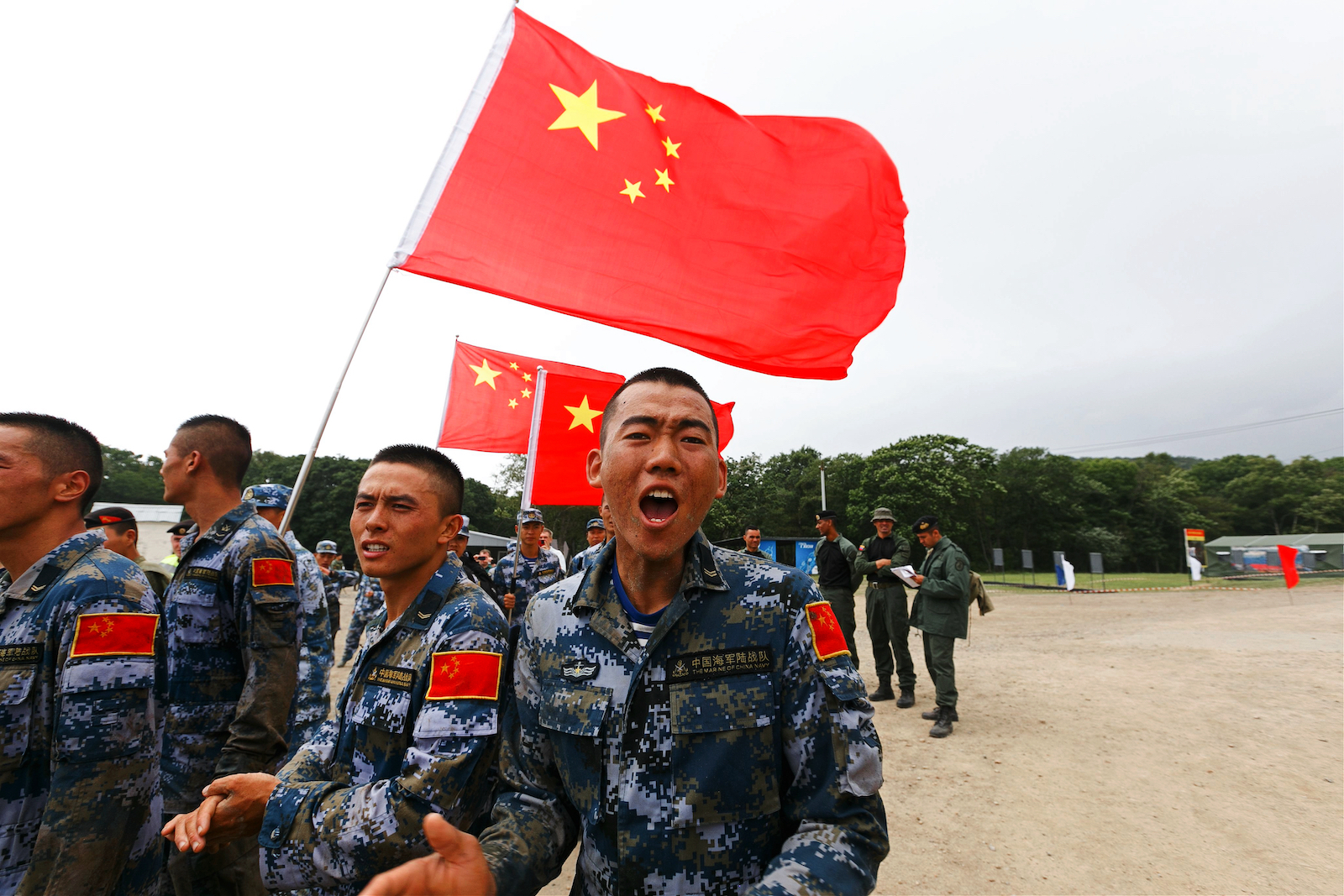
China is Purposely Trying to Upset the Applecart
In an increasingly audacious display of military and diplomatic might, China is vying to usurp the United States as the preeminent global superpower.
A recent sailing by the San Diego-based warship USS Gabrielle Giffords into the contentious waters of the South China Sea has elicited significant apprehension from Beijing. China reported the unauthorized incursion of the ship near the Second Thomas Shoal, an epicenter of territorial dispute between China and the Philippines within the South China Sea.
In a swift response, the Chinese Navy marshaled forces to surveil the vessel’s passage. A Chinese military spokesperson warned that the U.S. maneuver “gravely affected the peace and stability of the region.” He maintained that the USS Gabrielle Giffords’s presence in the South China Sea symbolizes an infringement and a violation of China’s sovereign rights. Contrarily, the U.S. Navy’s 7th Fleet repudiated any belligerent intentions, affirming that the ship was executing routine operations in international waters, aligning with international norms.
Such encounters are not isolated incidents. Frequent confrontations ensue between Chinese and Philippine warships around this shoal in the Spratly Islands. China is actively engaged in obstructing the Philippines’ efforts to provision and preserve a derelict warship, intentionally stranded in 1999 to serve as a makeshift military outpost.
Outmatched by China’s superior military force, the Philippines has sought support from the U.S. in its extensive territorial altercations with China in the South China Sea. Earlier this year, Philippines President Bongbong Marcos consented to an augmented U.S. military footprint in his country and lately pioneered joint maritime and aerial patrols with the U.S. Beijing’s claims to sovereignty over almost the entire South China Sea, a conduit vital for international shipping and replete with natural resources, is disputed by numerous nations including the Philippines, Vietnam, Indonesia, Malaysia, and Brunei. A 2016 ruling by the Permanent Court of Arbitration invalidated China’s territorial assertions in the South China Sea, citing lack of legal substance.

Beijing’s maneuvers in the South China Sea are symptomatic of a grander scheme to subvert the West-centric, rules-based global order. Engaged in a multifaceted crusade to ascend as the global sovereign, it has forged alliances with nations such as Iran and Russia, counter to Western blocs, and its policy trajectory appears to pivot from global interconnectedness towards a nuanced form of isolationism.
The inevitability of China’s move to annex Taiwan looms large, and the United States and its allies must brace for this prospect. Domestic tribulations within China may prompt the nation to flex its military and foreign policy might as a diversionary tactic.
Under Xi Jinping’s leadership, China is grappling with a series of internal challenges, notably a pronounced economic downturn. The once burgeoning Chinese economy now struggles to sustain economic growth, impeding its advancement to an economic powerhouse status. Structural infirmities such as an aging populace, subpar social welfare, rampant pollution, and reliance on critical imports exacerbate the economic malaise. Xi’s governing style, marked by a paranoia-induced constriction of pivotal private sectors and marginalization of business leaders, not only stymies China’s self-reliant technological ambitions but also hinders its transition to a service-oriented economy. Particularly affected is the digital services domain, vital for this economic metamorphosis.
Sociopolitical tensions have intensified under Xi’s regime. The Hudson Institute highlights China’s burgeoning youth unemployment and a teetering real estate sector, formerly the repository of 70-80 percent of household wealth. An escalating surveillance state and an incapacity to rectify educational and social service inadequacies are progressively diminishing public confidence. These domestic strains are compounded by the global economic stagnation post-pandemic.
Xi’s aggressive economic and military strategies, designed to contest the Bretton Woods system, have not translated into economic triumph. Rather, these moves have incited resistance from the U.S., its Western allies, and neighboring countries.
This confluence of economic and geopolitical tribulations presents the U.S. and its allies with a strategic window to counter Xi’s mercantile and geoeconomic machinations, fostering change and thwarting efforts to dismantle the prevailing Western-led global order.
China’s strategic bid to remodel the global order and its assertive military presence in the South China Sea reflects its overarching ambition for supremacy. The construction of artificial islands and military installations in this pivotal maritime arena signifies a strategic push for dominion, aiming to displace existing powers, particularly the United States, in the Asia-Pacific region. These actions are not merely regional power plays; they are harbingers of China’s intention to cement itself as a global military titan.
By contending with the U.S. in technology, trade, and military capacity, China is articulating its global aspirations. These developments collectively imply that China’s maneuvers to transform the global order and exert military influence in the South China Sea are integral to its broader ambition to command global preeminence.

